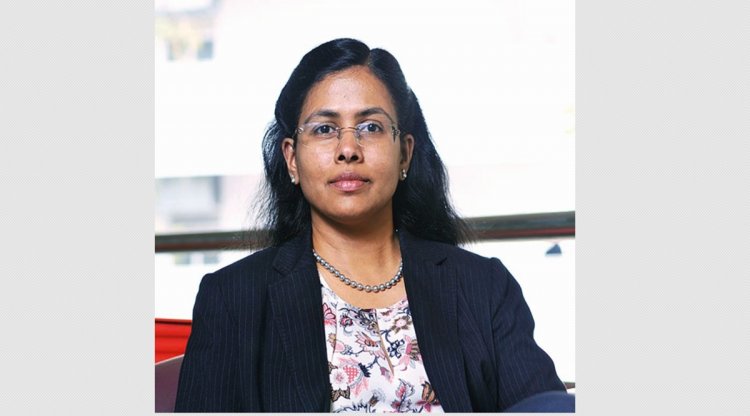Go digital to make a difference beyond profit
It's not just the technology that's evolving—the more significant change has been in mindset. Individuals and organisations alike are seeing technology in a different light

By Daisy Chittilapilly
Innovation during a crisis is often far more transformative and disruptive simply because it is borne of the most primal instinct we possess — survival. This is what we saw during the pandemic, as necessity drove some of the most game-changing discoveries—not just of products and services but of how resilient we are as a species. With this renewed spirit, a new world is being built, where technology is playing the role of enabler and ally.
According to McKinsey, we will experience more technological progress in the coming decade than we did in the preceding 100 years. It’s not just the technology that’s evolving—the more significant change has been in mindset. Individuals and organisations alike are seeing technology in a different light. As we head into 2022, the most crucial step in capitalising on the opportunities ahead is to identify the technology transitions taking shape and how they will impact innovation and experience.
Transition No 1: Apps will push the boundaries of data analytics
As apps become the business for organisations, the data they generate and the value that is derived from them will redefine enterprises. Teams will go far beyond just extracting contextual insights to automating mundane and even the most complex tasks, moving towards predictive, self-diagnosing-and-healing systems that help offer frictionless, intelligent processes. To make this happen, applications must be created with an automated, observable, and programmable approach coupled with end-to-end security that’s built into every function at every level, from development to deployment.
Transition No 2: Rise of ethical and transparent AI-driven processes
As data deluge becomes a real challenge, AI/ML will become far more sophisticated in mining relevant insights from the data being created. However, if the AI being used to decipher data comes with in-built prejudices, then the insights it offers are essentially worthless. This is why ethical and responsible AI is non-negotiable. AI must be transparent, so everyone can see where and how inferences are drawn. To ensure that the AI of the future accurately and sufficiently represents all groups, putting together diverse teams that can construct truly inclusive experiences will be a major focus area for enterprises.
Transition No 3: Quantum computing and security to enable an efficient and secure internet
Quantum computing and security will interlink differently than conventional communication networks which stream bits and bytes to provide voice and data information. It could enable new forms of secure connections between devices, making them dense and impervious to hacks. This kind of end-to-end unbreachable security becomes viable with quantum networking, leading to better fraud protection for transactions or other data breaches. As a result, the internet as we know it today will be altered forever.
Transition No 4: Internet will become the most powerful equaliser
The network is the foundation on which the digital world will be built. And faster digital connections, powered by 5G and IoT, have the potential to unlock a new wave of economic activity. Not to mention how far the internet can go in empowering people and bringing essential citizen services such as healthcare, education, banking, etc., as well as higher-paying jobs to India’s most underserved communities.
McKinsey suggests that implementing faster connections in mobility, healthcare, manufacturing, and retail could increase global GDP by $1.2 trillion-$2 trillion by 2030, and according to the Telecom Regulatory Authority of India, this can have a cumulative economic impact of $1 trillion on India by 2035. Essentially, the internet will become the greatest equaliser of this century, bringing everyone on even footing and facilitating equal access to new opportunities.
Transition No 5: Sustainability will be a critical measure of the success of digital technologies
While sustainability has been a topic of conversation for some time now, we have only recently started to explore how digital technologies can be leveraged to design business practices and systems that help build a better world. Digital will be an engine of sustainability, and mainstream use of technologies like AI, IT/OT (information technology/operational technology), digital twins, automation, etc., will move the needle on one of the most urgent challenges we face today.
And the final transition—this isn’t related to any particular technology but is something I believe will make or break firms. Purpose will become a beacon of growth as companies re-evaluate why they exist and how they can make a difference beyond profit. This is what I am most excited to see—the impact that digitally-powered, sustainable, conscious enterprises will have on our communities and the planet.
As these trends fuel innovation at a greater speed and scale than ever before, I believe we will be able to build a far more prosperous and inclusive future for all.
The writer is president, Cisco India & SAARC







